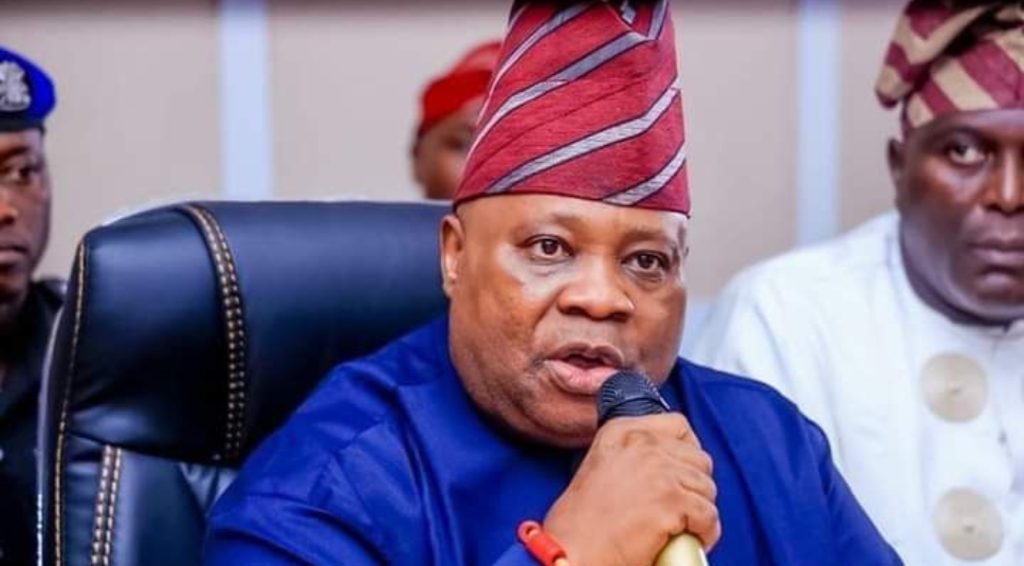The impending local government elections in Osun State have ignited a contentious legal and political standoff between Governor Ademola Adeleke and the Federal Government, represented by Attorney-General of the Federation (AGF) Lateef Fagbemi. Governor Adeleke has resolutely affirmed his commitment to holding the elections as scheduled on Saturday, despite a plea from the AGF to suspend the polls. The heart of the dispute lies in the interpretation of a recent Court of Appeal ruling that reinstated local government chairmen previously sacked by Adeleke. The AGF argues that the ruling effectively invalidates any new elections until the reinstated chairmen complete their tenure in October 2025, while Governor Adeleke maintains that the elections are legal and necessary for local development.
The AGF, invoking the principle of constitutionalism, has cautioned against holding the elections, asserting that they would violate the restored chairmen’s tenure and constitute a breach of the Constitution. He emphasized the importance of upholding the rule of law and maintaining peace in Osun State. Fagbemi’s appeal is grounded in the recent Court of Appeal judgment in Akure, which overturned a previous Federal High Court decision that nullified the local government elections conducted under former Governor Adegboyega Oyetola. This appellate court ruling reinstated the sacked council chairmen, effectively giving them a mandate to continue in office until October 2025. The AGF argues that holding new elections before the expiration of this reinstated tenure would be a direct contravention of the court’s decision and, consequently, a violation of the Constitution.
Governor Adeleke, however, has remained steadfast in his resolve to proceed with the elections. He insists that his actions are guided by the rule of law, asserting that no individual, including the AGF, has the authority to override court decisions. Adeleke’s spokesperson, Olawale Rasheed, emphasized that the governor’s stance is rooted in adherence to democratic principles and the importance of respecting judicial pronouncements. The governor has framed the elections as essential for fostering development at the local level and has urged the people of Osun State to remain peaceful and participate in the democratic process. This unwavering commitment to holding the elections underscores a potential clash between the executive branch of the state government and the federal government’s interpretation of the legal landscape.
The core of the disagreement revolves around the interpretation of the Court of Appeal’s ruling. While the AGF interprets the ruling as a definitive reinstatement of the previous council chairmen until October 2025, effectively precluding any new elections during that period, Governor Adeleke appears to interpret the ruling differently. He seemingly believes that the ruling does not prevent him from holding new elections, suggesting a differing understanding of the legal implications of the court’s decision. This divergent interpretation of the same legal precedent has created the current impasse and fueled the ongoing dispute. The governor’s insistence on holding the elections despite the AGF’s warning sets the stage for a potential legal challenge to the outcome of the polls, further escalating the tension.
The unfolding situation in Osun State highlights the complex interplay between legal interpretations, political maneuvering, and democratic processes within Nigeria’s federal system. The clash between the state government and the federal government underscores the delicate balance of power between these two levels of government, particularly in matters of electoral governance. The outcome of this standoff will have significant implications for the future of local governance in Osun State and could potentially set a precedent for similar situations in other states. The potential for post-election litigation looms large, adding another layer of complexity to the already tense situation.
The AGF’s call for restraint and adherence to the rule of law, juxtaposed with Governor Adeleke’s determination to proceed with the elections, creates a volatile situation with the potential for legal challenges and political repercussions. The differing interpretations of the Court of Appeal ruling have further complicated the matter, raising questions about the clarity and enforceability of judicial decisions in the context of local government elections. The ultimate resolution of this dispute will likely require further judicial intervention to clarify the legal parameters governing local government elections and the authority of state governors in conducting such polls. The situation in Osun State serves as a microcosm of the broader challenges facing Nigeria’s electoral system, underscoring the need for clear legal frameworks and mechanisms for resolving electoral disputes.


